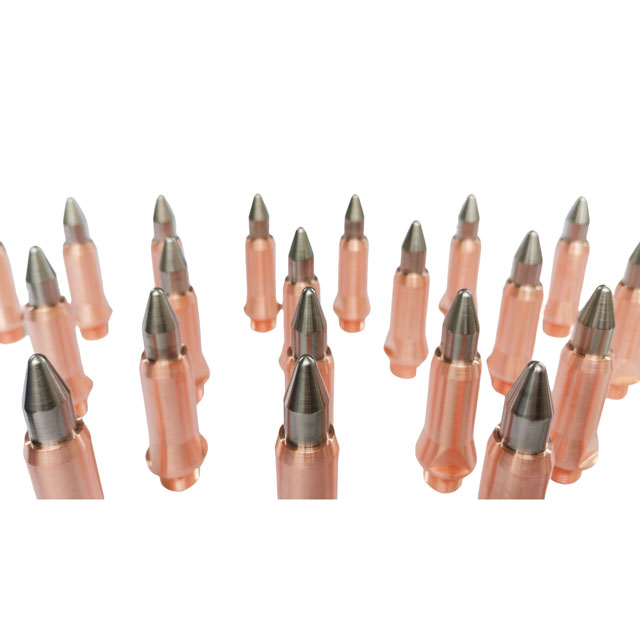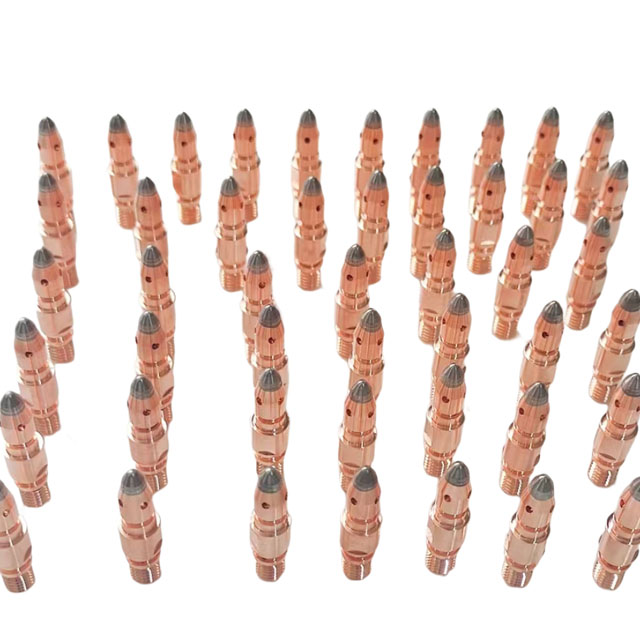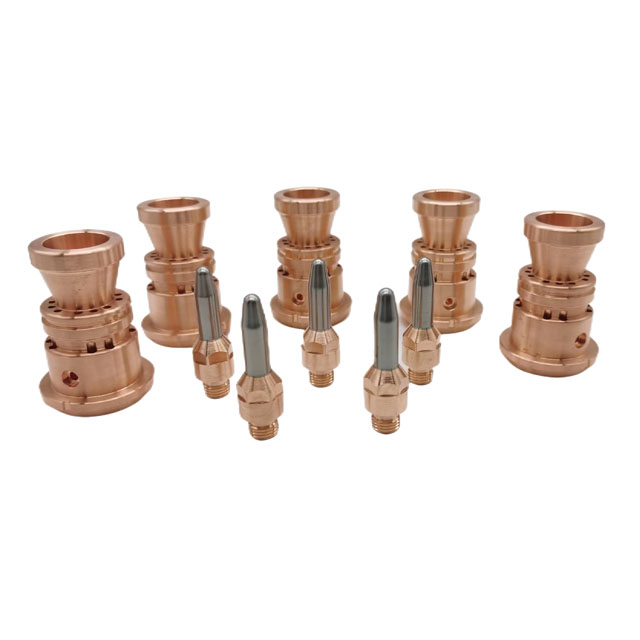What factors must be considered in choosing an electrode?
When choosing an electrode, several factors need to be considered to ensure optimal performance and suitability for the intended application. These factors include:
Material Compatibility:
Consider the base material being welded or cut and ensure the electrode material is compatible. For example, in TIG welding, a tungsten electrode is commonly used because it can withstand the high temperatures involved and is compatible with a wide range of metals.
Certain applications may require specialized electrode materials to prevent contamination or ensure proper bonding with the workpiece material.
Electrode Type:
Tungsten electrodes are widely used for TIG welding due to their high melting point and excellent conductivity. Different types of tungsten electrodes, such as pure tungsten, thoriated tungsten, ceriated tungsten, and lanthanated tungsten, offer various advantages depending on the application.
Copper electrodes are often used in resistance welding due to their high electrical conductivity and thermal conductivity.
Graphite electrodes are commonly used in electric arc furnaces for melting and refining steel and other metals.
Electrode Size and Shape:
The electrode size and shape should be selected based on the specific requirements of the welding or cutting process and the desired weld or cut geometry.
In TIG welding, for example, the diameter and length of the tungsten electrode can affect arc stability, heat concentration, and weld penetration.
Electrode Coating:
Electrodes may be coated or alloyed with other materials to improve performance. For example, thoriated tungsten electrodes are coated with thorium oxide to enhance arc starting and stability in DC welding applications.
Coatings may also provide benefits such as increased resistance to erosion, better arc control, and reduced spatter formation.
Electrode Stability:
Electrode stability is crucial for maintaining consistent performance and achieving high-quality welds or cuts.
Factors such as electrode composition, purity, surface finish, and manufacturing quality can affect stability.
Operating Conditions:
Consider the operating environment, including temperature, pressure, and exposure to corrosive substances. Ensure the electrode material can withstand these conditions without degradation.
For example, electrodes used in high-temperature applications may need to be made from refractory metals such as tungsten or molybdenum.
Cost:
Consider the initial purchase cost of the electrode, as well as factors such as electrode life, maintenance requirements, and overall cost-effectiveness over the long term.
Cheaper electrodes may have shorter lifespans or require more frequent replacement, leading to higher overall costs.
Application Requirements:
Consider the specific requirements of the application, such as desired weld or cut quality, speed, and precision.
Some applications may require electrodes with specific properties, such as high conductivity, low thermal expansion, or resistance to thermal shock.
By carefully evaluating each of these factors, you can choose the most suitable electrode for your application, ensuring optimal performance and quality results.




Other Key words:Plasma Spray Nozzle, Plasma Spray Electrode, Nozzle, Electrode, X-ray Tube Accessories, Plasma Spray Gun Parts, Resistance Welding Electrode, Plasma Electrode, Waste Gas Treatment Electrode, Solid Waste Treatment Electrode






